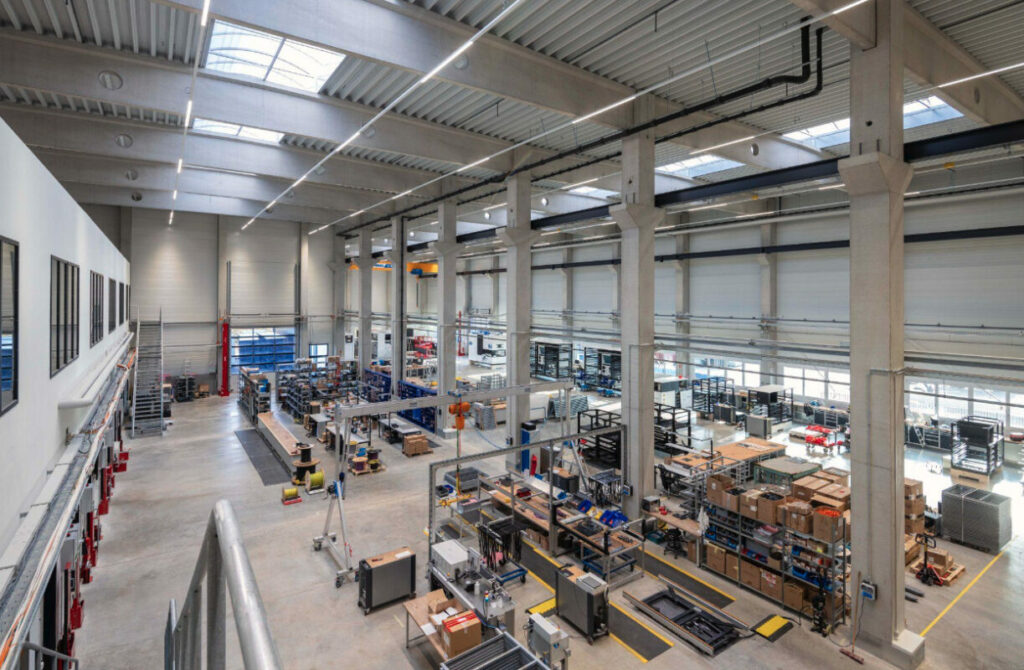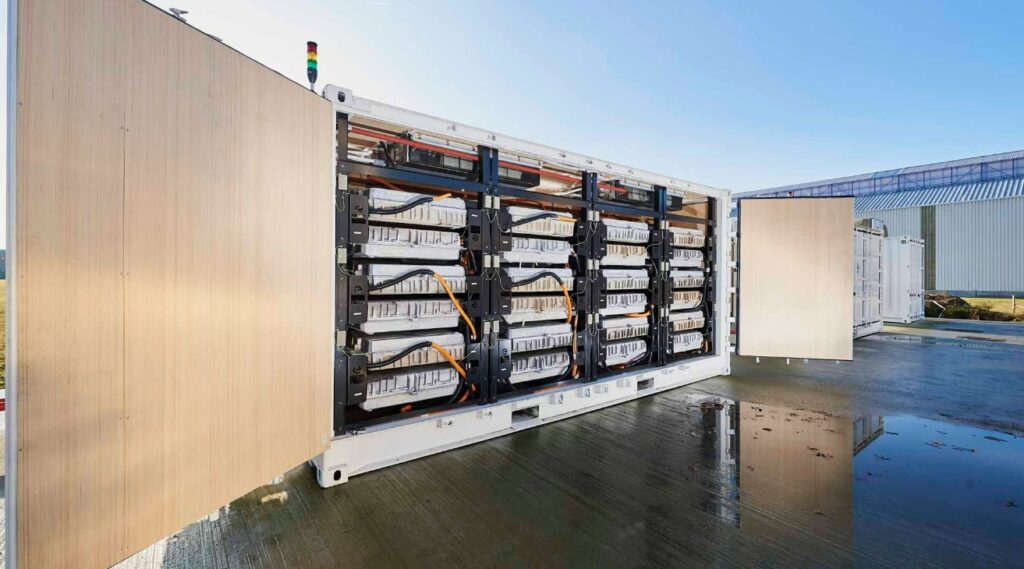
A second life energy storage assembly plant has opened in Germany, amidst a rapid fall in battery prices which could threaten the economics of repurposing EV batteries into stationary units.
“A lot of people are dropping out of the second life energy storage space,” a senior director at a second life energy storage company recently told Energy-Storage.news.
Enjoy 12 months of exclusive analysis
- Regular insight and analysis of the industry’s biggest developments
- In-depth interviews with the industry’s leading figures
- Annual digital subscription to the PV Tech Power journal
- Discounts on Solar Media’s portfolio of events, in-person and virtual
Second life energy storage involves deploying used electric vehicle (EV) batteries into stationary battery energy storage systems (BESS) and German company Fenecon announced last week (3 April) that its manufacturing facility in Lower Bavaria, which does just that, has officially gone into operation.
The 24,000 sqm, c.US$30 million investment facility will produce BESS units for the residential and commercial and industrial (C&I) sectors using “new obsolete electric vehicle batteries”, alluding to the fact most second life systems use batteries which were destined for EVs but never made it onto the road, for manufacturing or warranty reasons.
The C&I units, of between 82kWh to 1,288kWh, will only use new electric vehicle batteries from German premium vehicle manufacturers, it said. The company is also building a facility in South Carolina, US, where it says there is also an excess of EV batteries and demand for large-scale energy storage.
New battery price falls could threaten second life economics
However, the prices of new lithium-ion battery cells, packs and full BESS have fallen substantially since Fenecon started building its plant in late 2022, which coincided with Energy-Storage.news publishing a feature on the sector for Solar Media’s quarterly journal PV Tech Power.
The price falls led one company, Finland-based Cactos, to tell us in January 2024 that using new batteries was now more economical than repurposing EV batteries, compared to late 2022 when it presented itself as one primarily doing the latter.
A few months prior to Cactos’ statements, recycling firm Stena sold its second life energy storage arm BatteryLoop to a new, EU-backed energy storage investment vehicle Repono, and it isn’t clear whether the new owner will continue the approach.
And just before that, Germany-headquartered Stabl’s CEO Dr Nam Truong said its systems cost €400-600 per kWh, several times higher than what ‘first life’ BESS cost now thanks to rapid price falls: the comparison here is between Stabl’s C&I-sized units and 20-foot DC blocks for the grid-scale market in the US, but it still has some relevance.
Performance and cost-effectiveness
The model of repurposing EV batteries into stationary ESS has always had its critics who say it is too technically complicated to be cost effective at scale, an argument repeated by sources in the European lithium-ion gigafactory and EV battery technology space in recent conversations with Energy-Storage.news.
Using batteries of different models, chemistries and state-of-health (SOH) in a cost-effective way, at scale, is an arduous task for battery management systems (BMS), they say. Even Stabl’s Dr Truong told us the second life sector would ‘struggle’ with performance for this reason, when announcing a fundraise in August 2023.
The other option for when an EV battery can’t be used in a vehicle anymore, recycling, also has the near-term advantage of putting local materials directly back into the local supply chain (assuming they can be fully recycled domestically). Building up a local battery supply chain is a big political aim in both the US and Europe in order to reduce dependence on China which dominates the market.
Second life energy storage still has many advantages
However, second life energy storage companies can pay more for used batteries than recyclers can. One second life energy storage source, based in North America, told us recyclers would typically pay US$8 per kWh for batteries while a second life firm would pay around US$30 per kWh.
They also pointed out that deploying EV batteries in second life energy storage systems still helps to build up a local supply chain, by softening the demand for first life batteries. Another, the first source we quoted earlier on, pointed out that the batteries will still get recycled eventually, their company just gives them “another few years’ life”.
The prices of ESS units deployed using old EV batteries should also be falling as the price for new ones do. In the near term, marketplace prices for used batteries will need to fall to stay competitive with new ones, having increased during the price spikes of 2022.
Buyers of second life energy storage also take into account more than just price. One big attraction during the battery shortages and global supply chain bottlenecks of 2022 was potentially quicker delivery times versus new batteries. That is unlikely to be the case right now, but isolation from future bottlenecks is a plus.
Buyers can also avail of economic benefits by opting for second life BESS, such as obtaining better environmental ratings for real estate where it is deployed, which can then open up green financing opportunities.
At the broader level, second life energy storage reduces battery-related waste, CO2 emissions and battery recycling costs, and deployment of second life BESS systems should nonetheless grow as EV adoption becomes more widespread.


